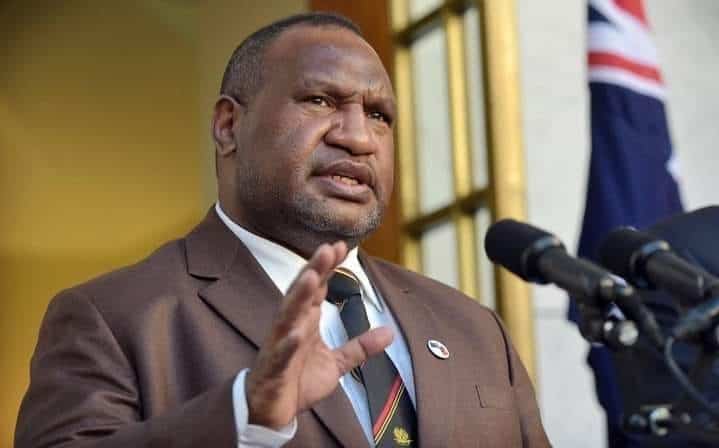Over his nearly four-year tenure as Papua New Guinea’s Prime Minister, James Marape has continued to trumpet his slogan – “Take Back PNG”. The trademark phrase, which has similar connotations to former U.S President Donald Trump’s “Make America Great Again”, has been Marape’s tagline for his government’s aim to rescue PNG from corruption, malpractice in government systems, and excessive foreign resource ownership among other sensitive issues.
But while the sentiments are usually positive in regard to PNG’s development, Marape’s government has now embarked on establishing a contentious new policy to monitor, regulate and sanction the media – threatening to take PNG way back in freedom of expression standards.
Since his re-election in August 2022, Marape and several of his cohort in government have become increasingly critical of PNG’s mainstream media, most often due to what they describe as “misleading” or “fake news”. In December, Marape floated the idea of holding journalists accountable for painting a negative image of the country and questioning his government’s capability to lead.
Unsurprisingly, the government has reassured stakeholders that the policy won’t lead to discriminatory tactics.
But journalists have argued that they are simply reporting on the state of the nation, and that ignoring stories that may not favour the government would in fact be misleading.
In February, after months of government press statements cautioning media houses and journalists about accurate reporting, the Department of Information and Communications Technology announced it would be consulting media professionals on a proposed draft national media policy.
Minister for Communications and Information Technology, Timothy Masiu, who was a journalist before entering politics, stated that the government’s intention with the policy is to “facilitate the use of media as a tool for development, such as the promotion of democracy, good governance, human rights and social and economic development”.
On paper, the policy aims at improving the country’s journalistic standards, which have been universally acknowledged as an ailing issue within the media fraternity. But where the alarm bells start to ring is in the finer detail of the draft policy. A proposed new legislation will “have the power to investigate complaints against media outlets, issue guidelines for ethical reporting, and enforce sanctions or penalties for violations of professional standards”, effectively giving the government a sanctioned regulatory body to enforce standards.
Unsurprisingly, the government has reassured stakeholders that the policy won’t lead to discriminatory tactics. But those who stand to be most affected, including the Media Council of Papua New Guinea, Transparency International PNG, and the United Nations, have expressed concern about the policy and the short timeframe for consultation.
Neville Choi, president of the Media Council, which is a non-profit organisation that voices concerns on behalf of media professionals and advocates for media freedom, likened the government’s plans to those in Fiji, where journalists have previously suffered penalties for challenging the government agenda. Choi says that PNG’s media is already self-regulating, with newsrooms enforcing their own code of ethics and practices to which journalists must adhere.
News of the policy is also raising red flags across the Pacific, as academics and professionals in the media industry worry about a replication of the Fijian situation.
With established avenues for redress already in place, such as the courts and justice system, the recent criticism of journalistic standards does not justify introducing legislation to hold the media accountable. “We remind government,” Choi says, “that the current level and standard of journalism performers is largely a result of lack of government support to the journalism schools and institutions in our country.”
Transparency International PNG, an NGO corruption watchdog, has also expressed apprehension about the draft policy and explicitly stated that “licensing through a government-enforced process will be a threat to media professionals as they gather and disseminate news against government interests”.
News of the policy is also raising red flags across the Pacific, as academics and professionals in the media industry worry about a repeat of the Fijian situation. Head of Journalism at Fiji’s University of the South Pacific, Shailendra Singh, doubts the assurances by PNG’s government that the policy has been crafted to protect journalistic freedoms. Papua New Guinea’s journalistic independence hangs in the balance. With Marape’s government set to introduce regulatory legislation, the threat to PNG’s media is real.
